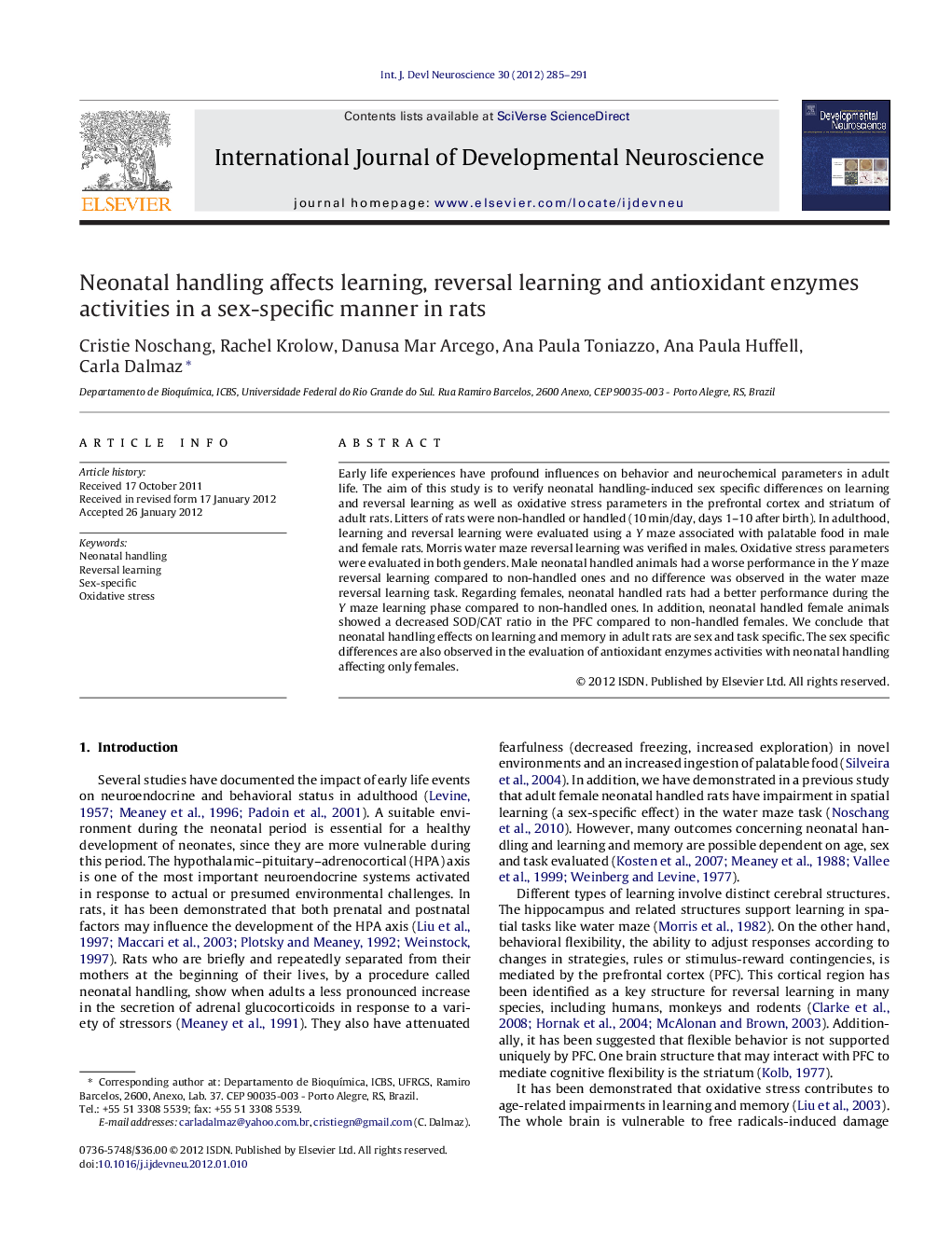| Article ID | Journal | Published Year | Pages | File Type |
|---|---|---|---|---|
| 2786264 | International Journal of Developmental Neuroscience | 2012 | 7 Pages |
Early life experiences have profound influences on behavior and neurochemical parameters in adult life. The aim of this study is to verify neonatal handling-induced sex specific differences on learning and reversal learning as well as oxidative stress parameters in the prefrontal cortex and striatum of adult rats. Litters of rats were non-handled or handled (10 min/day, days 1–10 after birth). In adulthood, learning and reversal learning were evaluated using a Y maze associated with palatable food in male and female rats. Morris water maze reversal learning was verified in males. Oxidative stress parameters were evaluated in both genders. Male neonatal handled animals had a worse performance in the Y maze reversal learning compared to non-handled ones and no difference was observed in the water maze reversal learning task. Regarding females, neonatal handled rats had a better performance during the Y maze learning phase compared to non-handled ones. In addition, neonatal handled female animals showed a decreased SOD/CAT ratio in the PFC compared to non-handled females. We conclude that neonatal handling effects on learning and memory in adult rats are sex and task specific. The sex specific differences are also observed in the evaluation of antioxidant enzymes activities with neonatal handling affecting only females.
► Neonatal effects on memory during the adult life are sex specific. ► Neonatal handled females learn faster an appetitive task. ► Neonatal handled males had no difference on learning of an appetitive task, however they showed impairment on the reversal learning. ► No impairment was observed in a spatial task in handled males.
